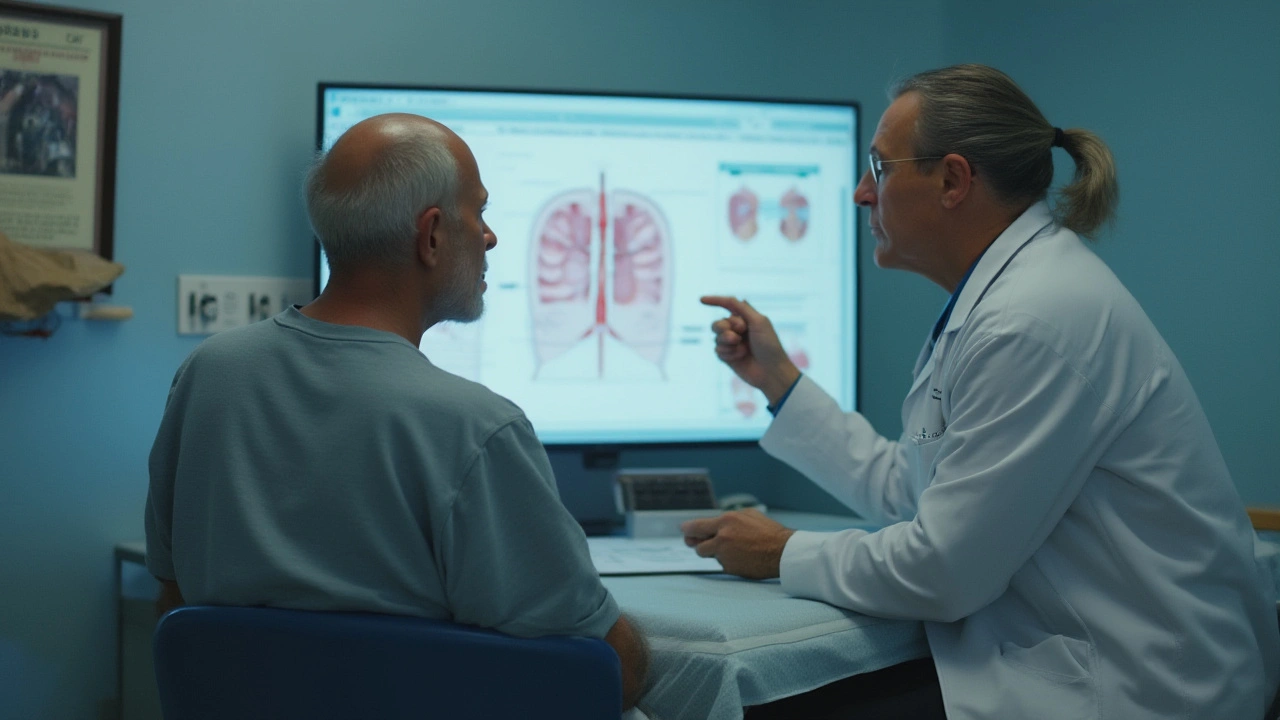Hepatic Encephalopathy Treatment: What Works and How to Start
If you or a loved one has liver disease, you might have heard the term “hepatic encephalopathy” (HE). It’s a condition where toxins build up in the brain because the liver can’t filter them out. The good news? There are proven treatments that can bring symptoms back under control and keep you feeling sharper.
First‑Line Medications
The two drugs most doctors prescribe for HE are lactulose and rifaximin. Lactulose is a synthetic sugar that stays in the gut, draws ammonia out of the bloodstream, and then leaves the body as a bowel movement. Most people start with a low dose, usually 25 ml two to three times a day, and increase until they have two soft stools per day. It may cause some cramping at first, but the benefits outweigh that temporary discomfort.
Rifaximin works differently. It’s an antibiotic that cuts down the gut bacteria that produce ammonia. Many patients keep taking lactulose and add rifaximin only if symptoms keep coming back. The usual dose is 550 mg once a day, taken with food. Because rifaximin stays in the gut and isn’t absorbed into the bloodstream, it has fewer systemic side‑effects.
Both medicines are safe for most adults, but talk to your doctor if you have kidney issues or are pregnant. If you’re on other drugs, ask about possible interactions – especially with other antibiotics or medications that affect gut motility.
Supporting Strategies & When to Get Help
Medication is just one part of the puzzle. A few lifestyle tweaks can boost results:
- Watch your protein intake. Too much protein can increase ammonia production. Opt for moderate protein sources like tofu, beans, and lean poultry, and spread meals throughout the day.
- Stay hydrated. Dehydration makes constipation worse, which can raise ammonia levels. Aim for at least eight glasses of water daily.
- Avoid alcohol. Even small amounts can worsen liver function and trigger HE episodes.
- Regularly monitor weight. Sudden weight loss or gain may signal fluid shifts that affect the brain.
If you notice confusion, difficulty concentrating, slurred speech, or unusual sleep patterns, it’s time to call your healthcare team. Early treatment can prevent a full‑blown HE crisis, which sometimes requires hospital care.
In some cases, doctors may recommend other options like ornithine‑aspartate or a liver transplant evaluation if HE recurs despite optimal therapy. These decisions are made case‑by‑case, so keep an open dialogue with your specialist.
Bottom line: start with lactulose, consider adding rifaximin if needed, and back up the meds with simple daily habits. With the right plan, most people keep HE under control and enjoy a better quality of life.
Get a clear look at hepatic encephalopathy—what causes it, what symptoms to watch for, and practical treatment steps that can save a life.
